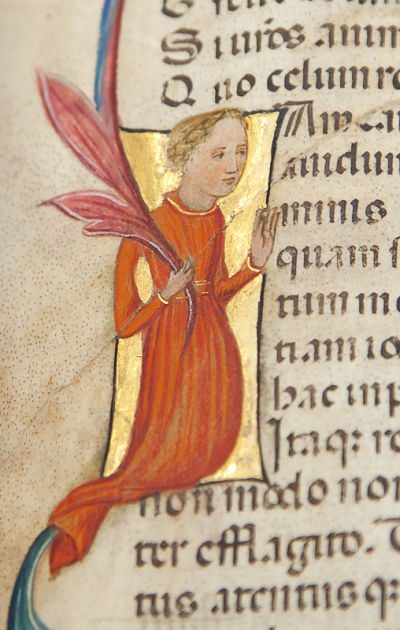
I. Two Truths: For the Overly Sad or the Overly Cheerful
One cause of our sorrow is we forget our true natures. If we think “we are just no good,” we lie. If we think we “should do as we will,” then we lie.
Much of our sorrow comes from forgetting the truth.
We are souls created in the image of God. This means that if anyone tells you that you have no value, they are wrong. If anyone tries to transgress proper boundaries, they are wrong. God has given you a right to life, liberty, and the pursuit of happiness. You should flourish as a human person: body, mind, heart, and passions.
These are great truths and sometimes we need to hear them. Tyrants inside the church, state, and family need to hear them too. God’s servant:
A bruised reed shall he not break, and the smoking flax shall he not quench: he shall bring forth judgment unto truth.
We do give our wills to God (never to be confused with any human), but this is not so God can turn us into mindless drones. Instead, we should think more, question more, love more. Just as having a healthy childhood helps us have a healthy adulthood, so does having God as our Father lead us to maturity.
We are all called to a high calling, yet we “ceased to know our own nature.”
At the same time things are not as they should be. We often know what we should do, but instead we do what we should not. We hate, we make people objects instead of treating them as persons, we covet, we steal. None of these things are good, but all can be forgiven. Of course, to be forgiven, we have to start by acknowledging that they are wrong. We are not what we should be. We are not good and God is not good with that.
We cannot hide from the truth by accepting who “we are” since who we are is often selfish and unloving. Of course, for some this hatred is directed toward self. We are not what we wish so we punish ourselves instead of receiving grace. It is easy enough to find people who will exploit us if we give them undue power to punish us.
This is not good.
One thing I have seen is that people who need to hear the first great truth about God’s liberty often end up in places that build on their depression. It is a way of exploiting and often means that they can be healthier “outside” this kind of “church,” at least at first. Another kind of person is full of bloated ego and narcissism and will find a “church” that never asks for repentance, but instead teaches only the good news.
A balanced place, a real church, might say: “Stop telling lies. That is not good. Ask God and your neighbor to forgive you. Make restitution.” After this is done, then the sane place will say: “God accepts you. Forgiveness is real. Don’t let people keep playing on your past errors.”
A good place is a community, one that does not leave us lonely, but also knows when to leave us alone. It will not pry, but it will pray. Not surprisingly, while modern “theology” or decadent “secularism” cannot accept the balance, lurching from one extreme to the other, classical philosophy, before Christianity, could see at least this much truth! True philosophy will not stop at one truth, instead probing forward to embrace the full truth about us.
This is a great comfort, though it is also hard.
What then do we hear when we face evils, some caused by us and some by others? What if we accept both that we are created by liberty, but have been mired in chains of our own making? What if we become free, only to have other people (the state, “church” people, even family) attempt to drag us down?
God honors us by sending us Philosophy . . . and invites us to talk to Him.
II. Consolation of Philosophy
One such conversation between a suffering man and Philosophy is in Consolation of Philosophy. This masterwork is hard: the author (Boethius) is a Christian and a philosopher. He is in prison for doing the right thing, but when Philosophy comes to comfort there are no lies. Boethius is encouraged to do his duty, but not told he is just “great” or that “everything will be ok.”
Philosophy is stern, but hopeful. Many of us want sternness when we should want hope, while the rest wish for hope when we need a hard, clear word. She honors him and she rebukes him. Boethius gets both, because he is sane enough to know, despite some complaints, that he needs both. He had been fortunate and now fortune has turned on him in a great series of blows.
Fortunately for him, he got no cheesy advice to cheer up or the lie that whatever in particular happens to him is all good or is God’s particular will: bad people do bad things. She is also hard on the emotional sirens who encourage us to enjoy being morose. They love to weep with those who weep. Philosophy accepts good, hard sorrow, but she will not let us escape into irrational laments.
‘Who,’ said she, ‘has allowed yon play-acting wantons to approach this sick man–these who, so far from giving medicine to heal his malady, even feed it with sweet poison? These it is who kill the rich crop of reason with the barren thorns of passion, who accustom men’s minds to disease, instead of setting them free.
Boethius, Anicius Manlius Severinus (2004-12-11). The Consolation of Philosophy (Penguin Classics) (pp. 3-4). Public Domain Books. Kindle Edition.
The good news is that the realm of truth, Nature, and of Nature’s God is unmoved by fortune. If we live with that realm in mind, things are still hard in this life, sometimes evil people prosper and good people are hurt, but we can have healing and and not just lamentations.
We are safe in God, in philosophy, in truth:
Whoso calm, serene, sedate, Sets his foot on haughty fate; Firm and steadfast, come what will, Keeps his mien unconquered still; Him the rage of furious seas, Tossing high wild menaces, Nor the flames from smoky forges That Vesuvius disgorges, Nor the bolt that from the sky Smites the tower, can terrify. (p. 8).
Yet God does not make us “just accept” this truth. He allows us (pictured here as Boethius) to complain and encourages us to make our hardest arguments against Philosophy. He is not insecure and God wants us to be adults. We come as children, but serve God as adults. We start with the milk of wisdom, but God yearns for us to eat meat. Just for this reason, we can ask God anything, doubt, and discuss.
God’s Philosophy is not disturbed by our complaints. She allows that we do good things and sometimes receive evil from unjust men in this life. We can cry out to God and listen when Philosophy speaks:
When I had poured out my griefs in this long and unbroken strain of lamentation, she, with calm countenance, and in no wise disturbed at my complaining, (p. 16).
He will never be lost, exiled, or made a slave if Boethius serves the King of the Cosmos. Submission to God is not slavery:
to submit to whose governance and to obey whose ordinances is perfect freedom. (p. 16).
Of course, part of the problem is that we are not even so thoughtful as the old pagan Greek philosophers, we love our passions and take them very seriously. We either fear them so much we pretend not to have them (closeting them like monsters) or we believe that if we have a passion we must do something with it or about it. We do not just have our passions, we are controlled by them one way or another.
There is no balance there. Churches or secularists who sell emotions or teach us to live by our passions are teaching us to be less than who we are. Children of the King control and use their passions. When we do not, then we learn to love what we must lose (we all die) and ignore what we cannot lose (truth, goodness, beauty).
We become Fortune’s fool.
Philosophy teaches us to put our minds on eternal things: that is exalting. We put our minds of temporal things: that places us under luck. Perhaps we should hear this word: we should choose the love of Wisdom and not the love of Fortune! If we are taught to keep score by wealth or honor, then we cannot win. Nobody gets out of life with money and honor. We come to death stripped naked of both things. Perhaps, nobody (secular or Christian) should have us look for happiness in either place!
So we have a great consolation, in God we can became lovers of Wisdom and come to be beyond Fortune. Sadly, we do not do this and so find misery, becoming less than we might be. Nothing created can last, but we are too often taught today to love the created more than the eternal.
Be careful: we do not hate the created, we enjoy creation. However, we put our love in eternity and eternal things: ideas, souls, and God. There is “harder medicine,” deeper truths, but that is for another day.
—————–
Based on a class at The Saint Constantine School.
















